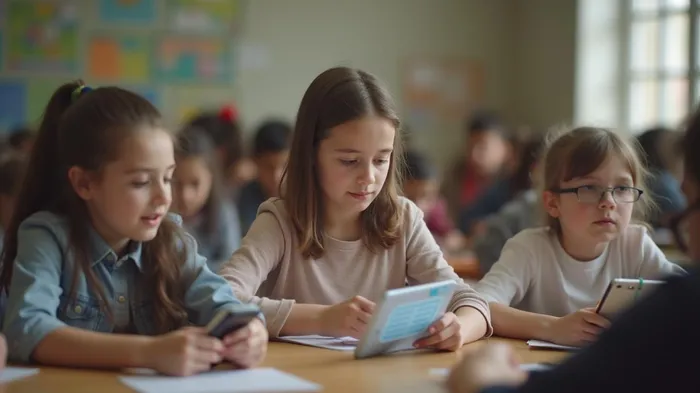25 States Enact Cellphone Restrictions in Schools to Boost Learning
In the United States, a notable shift in educationalEDUC-- policy is underway, with 25 states having enacted laws that either prohibit or regulate the use of cellphones in schools. This movement highlights the increasing concern among lawmakers and educators about the effects of mobile devices on student learning and behavior. The regulations differ from state to state, but the overarching objective is to foster a more concentrated and distraction-free learning atmosphere.
The enactment of these laws signifies a broader change in educational philosophy, emphasizing the significance of face-to-face interaction and direct engagement with educational content. By restricting cellphone use, schools aim to minimize distractions and motivate students to be more engaged in their learning activities. This strategy is especially pertinent in an age where digital devices are omnipresent, frequently resulting in constant interruptions and divided attention.
This trend is not confined to the 25 states that have already implemented such laws. Additional states are anticipated to adopt similar measures, indicating a widespread acknowledgment of the necessity to tackle the issues presented by cellphone use in educational settings. The growing emphasis on banning phones throughout the school day suggests a mounting consensus among policymakers and educators regarding the importance of these regulations.
The regulations are crafted to achieve a balance between the advantages of technology and the need for a structured learning environment. While cellphones can serve as valuable tools for communication and information access, their unrestricted use can impede academic performance and social development. By establishing clear guidelines, schools aim to leverage the positive aspects of technology while mitigating its adverse effects.
The impact of these laws on student behavior and academic achievement is yet to be fully understood, but the initial feedback from educators and parents has been predominantly positive. Many believe that curbing cellphone distractions will result in enhanced focus and better learning outcomes. As more states adopt comparable policies, the efficacy of these regulations will become more apparent, potentially influencing future educational practices nationwide.

Quickly understand the history and background of various well-known coins
Latest Articles
Stay ahead of the market.
Get curated U.S. market news, insights and key dates delivered to your inbox.



Comments
No comments yet